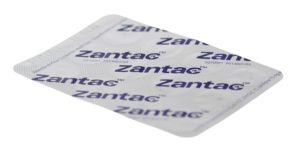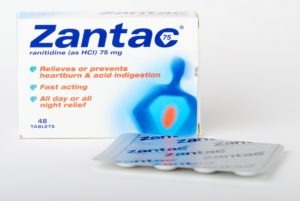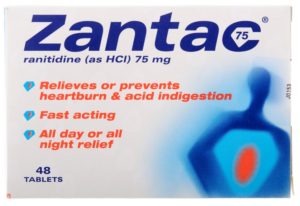What Led to the Recall of Zantac?

The US Food and Drug Administration (FDA) is responsible for protecting public health by enacting measures that ensure the efficacy, safety, and security of human and veterinary drugs, biological products, and medical devices. The FDA also ensures the safety of our nation’s food supply, cosmetics, and products that emit radiation.
They conduct years of testing and research before giving their stamp of approval, but occasionally they are obliged to go back and issue a recall if a product is determined to be harmful after reaching the public, even if said product has been around for many years.
Such is the case with Zantac, the popular antacid medication that has been in circulation since the early 1980s. The drug was recently discovered to contain carcinogenic amounts of the chemical known as N-nitrosodimethylamine (NDMA), and was subsequently recalled by the FDA on April 1st, 2020.
That being said, let’s take a closer look at the chain of events that eventually led to this monumental decision.
Various Citizen Petitions
For a free legal consultation, call (725) 900-9000
A citizen petition is a process provided by the FDA for individuals and community organizations to make written requests to the administration to change its stance on a certain product. Most petitions arise when there are concerns regarding substance safety, manufacturing practices, new or revised nutrition facts, or warning label requirements.
Before the official recall of Zantac, several pharmaceutical research laboratories filed citizen petitions with the FDA.
The Findings of the Valisure Pharmacy Lab
Valisure is an online pharmacy that provides consumers with an increased level of transparency in the medications that they supply. They created their laboratory to independently check the chemical composition of medicines before they are sold to the public.
In June of 2019, Valisure’s lab found that when exposed to high temperatures, some Zantac products contained more than 3,000,000 nanograms of NDMA per 150 mg tablet, which is the standard dose. To put those findings into context, the FDA’s daily intake limit of NDMA is just 96 nanograms.
Click to contact our personal injury lawyers today
In response, the FDA suggested that Valisure’s method of high-temperature testing might have increased the levels of NDMA in samples and requested that Valisure do a second test under average temperatures. Despite a change in temperature when testing, unacceptable levels of NDMA were still found. On September 13th, 2019, Valisure filed a citizen petition lobbying for a recall of all ranitidine-based products.
Complete a Free Case Evaluation form now
Their research, along with similar findings from Stanford University, asserted that the problem was the “inherent instability” of ranitidine, the active ingredient in Zantac. This means that over time, the molecule’s compounds degrade, and the byproducts of this process are the ingredients that form NDMA.
Findings From the Laboratory of Emery Pharma
Emery Pharma is a full-service contract research laboratory organization (CRO) in the fields of microbiology, cell biology, analytical chemistry, and medicinal chemistry. After Valisure’s petition, Emery’s lab conducted similar testing, and they too asserted that ranitidine is a time and temperature-sensitive pharmaceutical compound that accelerates NDMA production when exposed to heat, a common occurrence during shipping, handling, and storage.
Following in Valisure’s footsteps, Emery filed their own citizen petition on January 2nd, 2020. Their petition was the last before the FDA’s official recall notice was released a few months later. All previous users of Zantac and other ranitidine-based products have been encouraged to stop right away and seek medical attention, if they haven’t done so already. Zantac lawsuits are ongoing, and many more are expected to come forward.
Contact Our Zantac Lawyers at Van Law Firm
If you or a loved one has a history of using Zantac and has since been diagnosed with cancer, call the trusted staff of Las Vegas Zantac attorneys at Van Law Firm.
Call our Las Vegas office today at (725) 900-9000 Call Recording Disclaimer to discuss your case and to see if you may be eligible for multiple forms of compensation, such as medical reimbursement, lost wages, and pain and suffering. We are available around the clock, call now for a free consultation.
No obligation consultations are always free.
Let Us Help You! Call Now: (725) 900-9000


